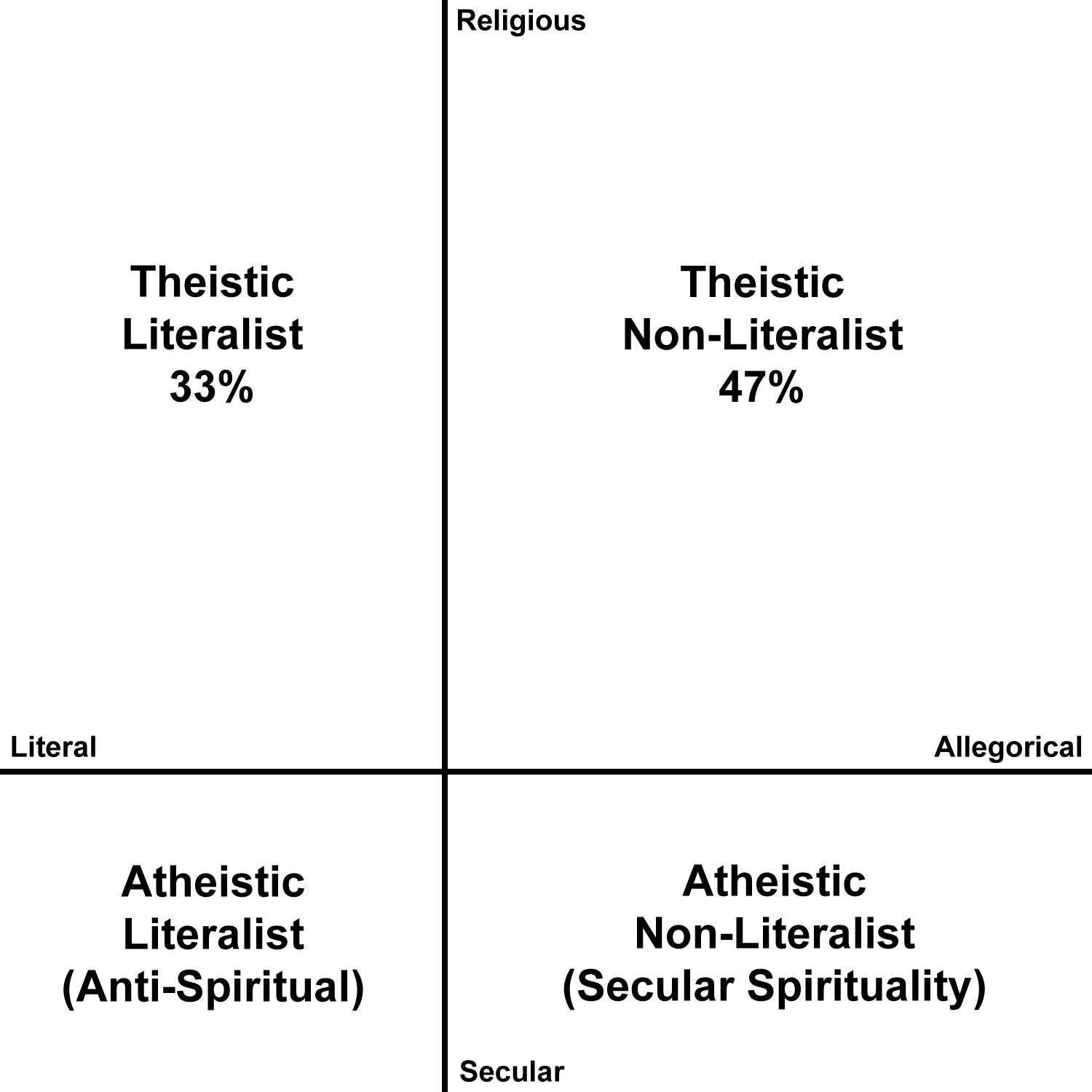Literalism

Literalism can refer to any fundamentalist religious belief based on any scripture.
"A lot of us grow up and we grow out of the literal interpretation that we get when we're children, but we bear the scars all our life. Whether they're scars of beauty or scars of ugliness, it's pretty much in the eye of the beholder." -Stephen King
The key feature of literalism is that scripture is assumed to be a literal depiction of historical events instead of allegory. This interpretation necessitates the existence of supernatural beings and forces that are incompatible with materialism. It also flies in the face of every lesson ever taught by an English teacher.
Any reading of scripture as allegory is potentially compatible with the pantheistic universalist interpretation of god, as long as those allegories are interpreted as references to things in the material universe.
See Biblical Literalism on Wikipedia.
Doctrine of Inerrancy
Literalism can more precisely be described as the doctrine of Inerrancy, which acknowledges the fundamental nature of language while still claiming that scripture is historically and factually correct.
Here's a great podcast that dives into the theology behind this. SWAJ - The Proof of Inerrancy
Most People Aren't Literalists
Religion and spirituality are not the opponents of truth, as atheists would claim. The only opponent is literalism. Most religious practitioners are not literalists, as the chart below shows.

While there is not survey data that distinguishes between literalist and non-literalist atheists, it is useful to make this distinction. Those atheists that consider most believers to be literalists, and the mythological interpretation of scripture to be the correct one, tend to be more anti-religious. The ones that acknowledge the allegories may describe themselves more as "spiritual but not religious," and form a much larger percentage of the population.
Unfortunately, the secular movement has typically focused on the lower-left quadrant, since they tend to be the more strictly rational and activist. The non-literalists on the right are more willing to explore their spirituality and don't always stay scientifically grounded, which makes lower-left say snarky things about them. If instead they would use the psychology of persuasion to help the non-literalists find rational allegorical interpretations of their beliefs (metaphor mapping), they could do a better job at advancing the cause of science and evidence.
All three of the non-fundamentalist groups have much more in common than they do with theistic literalists. This is due to the fact that they have all moved past the magic/mythic stages of cognitive development to more rational, pluralistic and universalist mindsets. As such, their ethics, politics, and other important values are significantly more aligned. There would be overwhelming democratic power in recognizing and building coalitions based on these commonalities instead of focusing on differences that don't significantly impact life choices.
Literally Videos